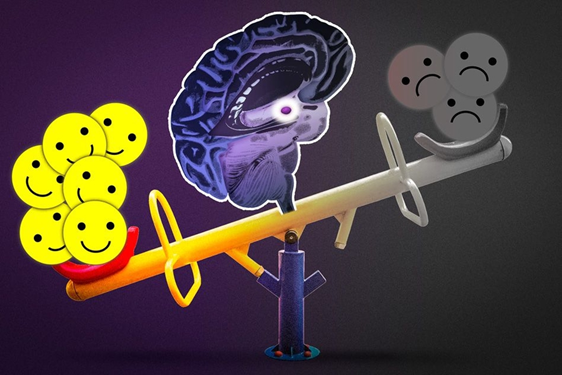Student Support Services Division
Page Navigation
- Department Homepage
- School Counselors
- Community Resources for Families
- Student Records
- Student Assistance Program
- Bullying Prevention
- Peer Leaders Uniting Students
- Restorative Practices
- Positive School Climate
- Tobacco Use Prevention Education
- HHI (Home Hospital Instruction) Program
- Suicide Prevention
- Section 504
- Student Code of Conduct
- Nondiscrimination
- Sexual Harassment
- LGBTQ Resources/Supports
- UCP Compliants
- De-escalation Strategies
- LCSSP Grant
-
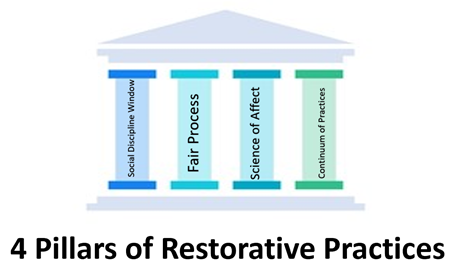
In the IIRP framework, there are “4 Pillars” that Restorative Practitioners use to guide their practice. The 4 pillars are: the Social Discipline Window, Fair Process, the Science of Affect, and the Continuum of Restorative Practices.
-
Pillar 1: Social Discipline Window
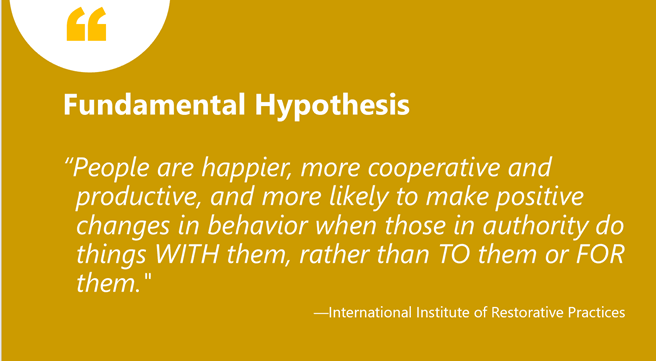
The fundamental hypothesis refers to the Social Discipline Window, which is considered the “Cornerstone” of Restorative Practices.
- The Social Discipline Window is a framework for developing relationships and community through interactions that balance high CONTROL (limit setting, discipline) with high SUPPORT (encouragement, nurture).
- The aim is for the adults in authority to interact WITH students and not TO them or FOR them.
- School staff can proactively plan how to be more restorative with students by looking for ways to increase the CONTROL factors such as high expectations, clear norms and boundaries, and effective organization and management, and the SUPPORT factors including caring and encouragement, empathetic listening, fostering understanding, and responding to needs.
- School staff can also use the Social Discipline Window to reflect and ask “Was that interaction restorative? What could I do to be more WITH and more restorative in my next interactions?”
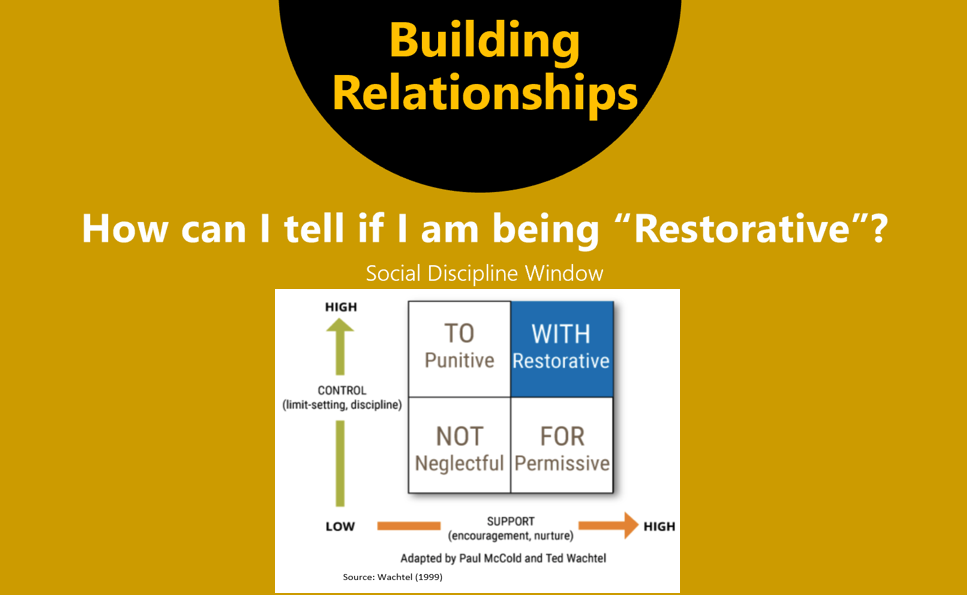
- The Social Discipline Window is a framework for developing relationships and community through interactions that balance high CONTROL (limit setting, discipline) with high SUPPORT (encouragement, nurture).
-
Pillar 2: Fair Process
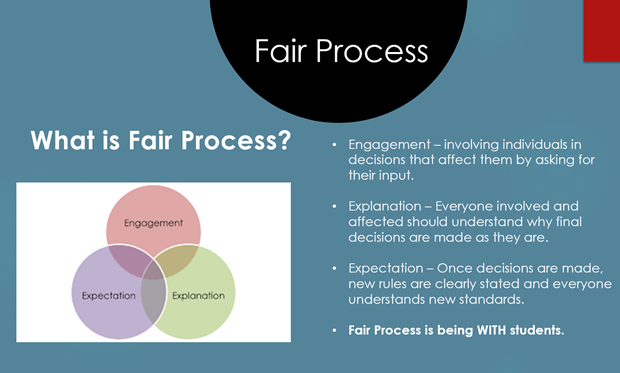
Fair process is important for developing trust that is necessary for strong relationships and strong community. IIRP looked for evidence based best practice and found it in organizational research. “Individuals are most likely to trust and cooperate freely with systems – whether they themselves win or lose by those systems – when fair process is observed.” Harvard Business review published the results of studies of effective business systems that had high levels of trust as a result of practicing fair process. They defined 3 factors that systems need to establish fair process: ENGAGEMENT, EXPLANATION, and EXPECTATION.
- STUDENTS are most likely to trust and cooperate freely with TEACHERS – whether they themselves win or lose by those systems – when fair process is observed.
- TEACHERS are most likely to trust and cooperate freely with ADMINISTRATORS – whether they themselves win or lose by those systems – when fair process is observed.
- PARENTS are most likely to trust and cooperate freely with SCHOOL SYSTEMS – whether they themselves win or lose by those systems – when fair process is observed.
Fair Process is a key factor in building the trust needed to develop a safe, strong, supportive school community.
-
Pillar 3: Psychology of Affect
IIRP looked to psychology and the science of human behavior to find out how emotions impact behavior.
The Tomkins’ “Blueprint for Emotional Health” identifies that human beings are hard wired to experience 9 affects (brain responses that we also refer to as feelings or emotions).
- The brain interprets 3 of these affects as positive experiences and 6 of these affects as negative experiences.
- The psychologist Silvan Tompkins’s proposed that since these negative affects are natural and wired into human brains, humans need ways to proactively address these negative experiences.
- The Tompkins blueprint for emotional health states that “individuals are at their best when they maximize positive affect, minimize negative affect, freely express emotion, as much as possible.”
This pillar of restorative practices teaches us to be aware that it is natural for students and people to have negative affect and behavior and that we need to intentionally work to minimize the negative and maximize the positive by using the tools on the continuum of restorative practices.
